I saw John Michael McDonagh’s Calvary at a press screening with five other critics. The responses ranged from “best film of the year” to “a waste of time.” That last was the sole voice of dissent, but was notable because of the palpable anger the film had generated — anger totally out of keeping with the critic in question. In fact, it was the sort of thing I usually expect from some of my more volatile readers. (You know — the ones who write letters.) I could understand someone not liking the film. It is a difficult and disturbing film — one of the smartest films of the year, one of most bleakly humorous ones and one of the grimmest. And the line between the film’s very black comedy and its grimness is very thin indeed — so thin that you’re not sure whether you should laugh. The juxtaposition of dark humor, deep anguish and questions of faith, sacrifice and redemption is a tricky proposition — and one that will not work for some viewers. But it’s one of the finest truly faith-based films I’ve ever seen.
Viewers expecting a film like McDonagh’s directorial debut, The Guard (2011) — which also starred Brendan Gleeson — both will and won’t get what they expect here. The strain of humor in Calvary is similar — albeit a little more self aware — but that which was bittersweet in The Guard is darker, more serious — and the stakes are higher. The self-awareness of it all is apparent from the beginning when Father James (Gleeson) remarks that the film’s first words — about what age the man in the confessional was when he first tasted semen — are a “startling opening line.” Of course, it’s true, but it also creates a sense that the film knows it’s a film. (There are similar instances along the way, but we’ll get there later.) As far as its startling nature, the line is really only an attention grabber for the true content of the “confession,” which you know if you’ve seen the trailer. The unseen man, after revealing that he was abused by a priest for years, explains that there’s no recourse for him because the priest in question is dead. Rather than payback or even simple revenge, the man wants to make a kind of statement by killing a priest — not a bad priest (apparently those are too common), but a good priest. Father James, his victim of choice, is given one week to put his affairs in order.
In this regard Calvary is something of a mystery story. Yet it’s a mystery story where the potential victim knows full well who his intended murderer is. Despite the Jesuitical reasoning — that the seal of the confessional does not apply here, since the man neither sought nor received absolution — of his bishop (David McSavage), Father James refuses to name the man, preferring to deal with the situation in his own way. It is, however, never clear just how he’s handling it, since Father James seems to merely go about his daily routine, which, of course, gives us a good look at the possible suspects. And a singularly unlovely collection they are. It’s not long before you wonder why the likable and essentially good Father James bothers about them, but perhaps that’s the point. At the same time, the arrival of his daughter (Kelly Reilly) — a child from a marriage prior to him joining the priesthood — who is trying to get herself together after a botched suicide attempt, might seem an added problem. But mightn’t it also provide a chance to put his affairs in order?
In some ways, it feels like Calvary‘s village is a satirical jab at the crafty and quirky provincials who populate so many Irish (or Scottish) movie comedies. These fit the concept — from the comical cuckold (Chris O’Dowd) to the crotchety old American writer (M. Emmet Walsh) — and they all play the roles they’ve been given. But there are disconcerting additions, including the local gay hustler (Owen Sharpe) who learned his trade (he says) from a bishop, services the local constable (Gary Lydon) and affects an accent that suggests he’s seen Angels with Dirty Faces (1938) about 50 times too many. We also have the local, coke-snorting slut (Orla O’Rourke), the wryly atheist, drug-abusing doctor (Aidan Gillen) and even an imprisoned serial killer (Domhnall Gleason). Like the film’s self-aware quality, this might be artifice, but I think it goes deeper to suggest that we are all part of a scripted drama that may not be of our own making, and that it is how we choose to play the scenes we’re handed that matters.
Considering the film’s title, it’s pretty much a given how this is destined to play out. Some people will undoubtedly find it a depressing affair, but I didn’t. Shattering? Yes. But depressing, no. There are too many moments of grace and reflection for that. Rated R for sexual references, language, brief strong violence and some drug use.

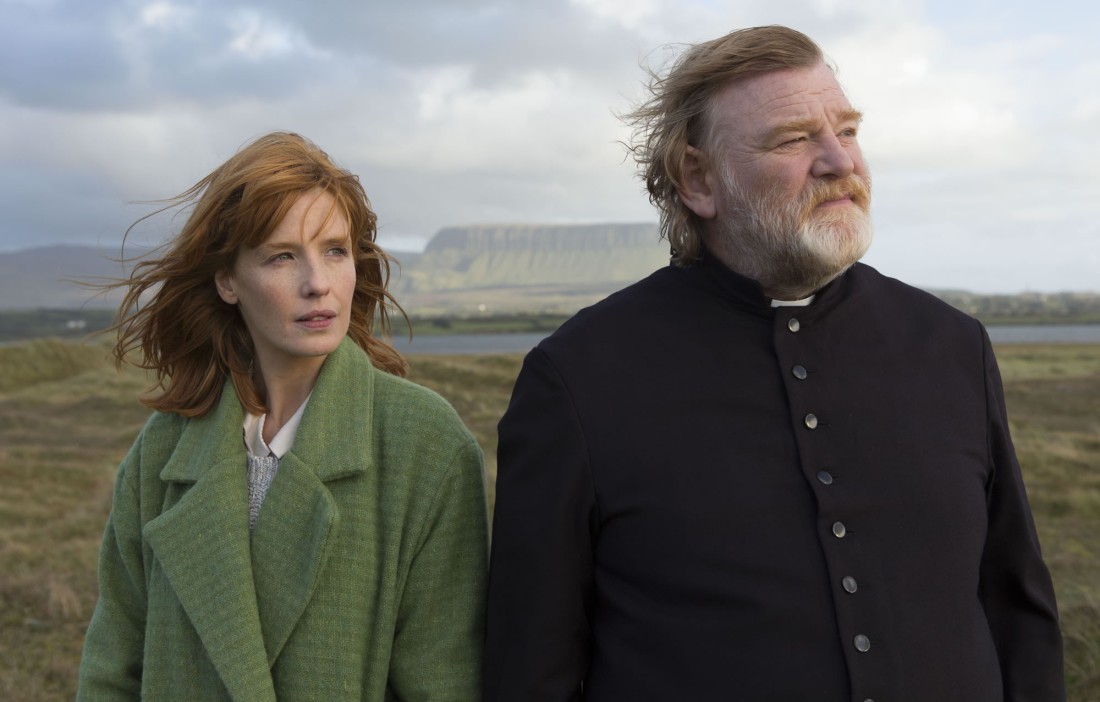
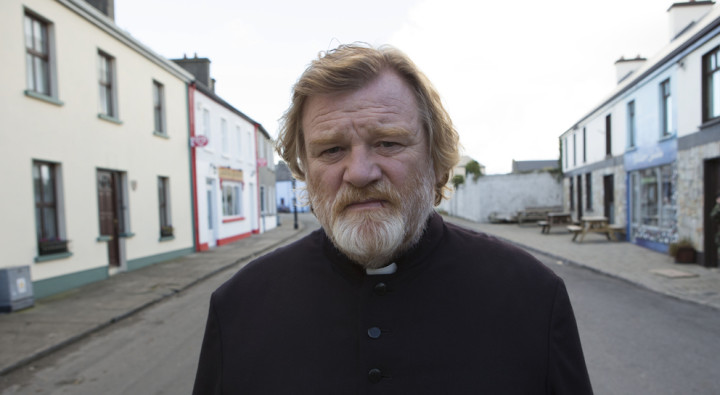

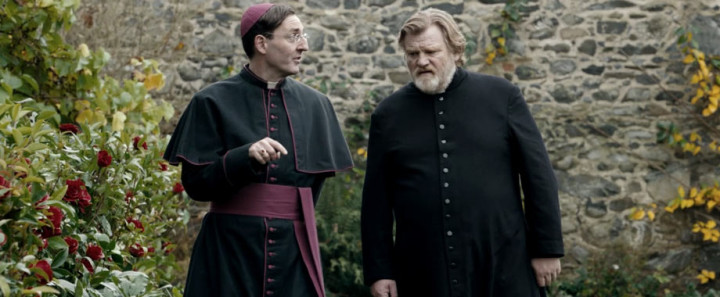
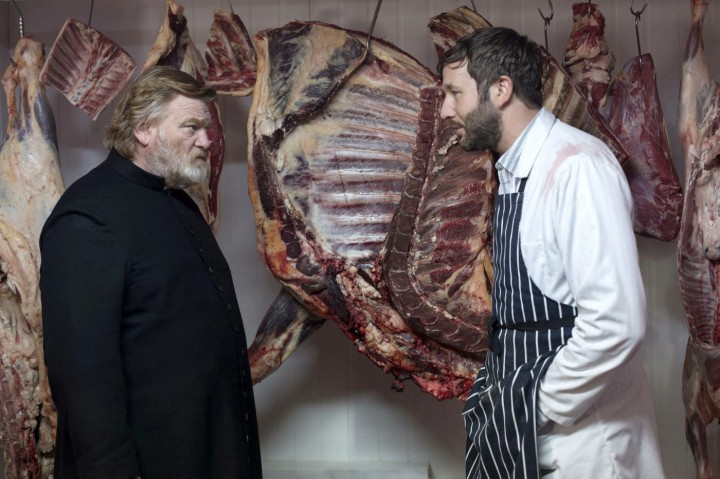
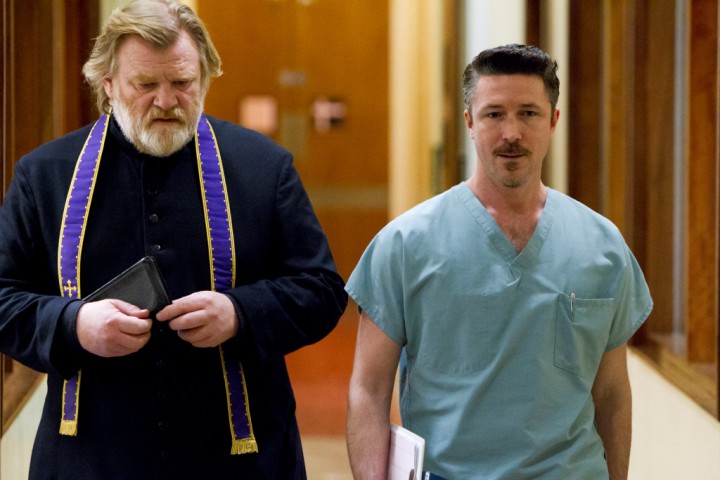

Im starting to think John Michael is the more talented McDonagh in the family.
They’re kind of hard to compare really.
…but if we did, I’d say Seven Psychopaths is still the best of the four films.
I lean toward In Bruges.
In Bruges is my least favorite of the four and I still like it a great deal.
When’s the last time you saw it?
A little less than a year ago. It was a Top 10 of 2008 for me after the initial viewing, but I remembered it being funnier than it was for me the second time. It’s also worth noting that I have yet to revisit The Guard or Seven Psychopaths, so they may very well have diminishing effects, too, though I hope they don’t.
Next question: was the original viewing with an audience?
Just me in our living room in Andrews, laughing like a madman.
Then there’s just something wrong with you. I’ve long suspected it.
Yes, living in Andrews was probably a mistake.
That’s pretty hard to argue with if you’ve been there.
Terrific film. Brutal, brutally funny, brutally sad, and perhaps more often than anything, heartbreakingly beautiful. Add to that the fact that this is a film that’s actually about faith, that actually stimulates theological reflection and not blindly dogmatic religious masturbation, and you’re left with a really special movie.
As much as I adore the breadth of their work, this may actually end up being my favorite of the brothers’ film. Taken as a pair (as messy and reductive as that course is), I’m not sure there are any filmmakers working today that more readily appeal to me than the McDonaghs, although I’ve probably said the same thing about Wes Anderson and Edgar Wright, and I know I’ve said the same thing about Hayao Miyazaki (not that he’s working), so it’s probably more a matter of mood and thing most recently watched than anything. Nevertheless, this is an endlessly powerful work that really needs to be seen.
I wouldn’t care to commit myself on most immediate appeal of filmmakers working today.
Saw this yesterday before Tess (hello 5 hour movie day) and you used the absolute correct word: shattered. As was I, but definitely not depressed. Great film, great review!
Thank you, and I’m glad you liked it.
Saw it today and have to echo the former comment. Great review. Great film. Both are oddly perfect.
I’m certainly glad you found favor with both.
I’ve had this sitting in iTunes waiting for me to watch it for a few weeks and finally got around to it this morning, which is at least thematically appropriate.
Blimey.
I am assuming that’s a good blimey.
As good as they get.
The review pretty much nailed it. It was my favorite film of last year and I’m happy to have read such an eloquent appraisal.
Thank you. I am not often called eloquent!